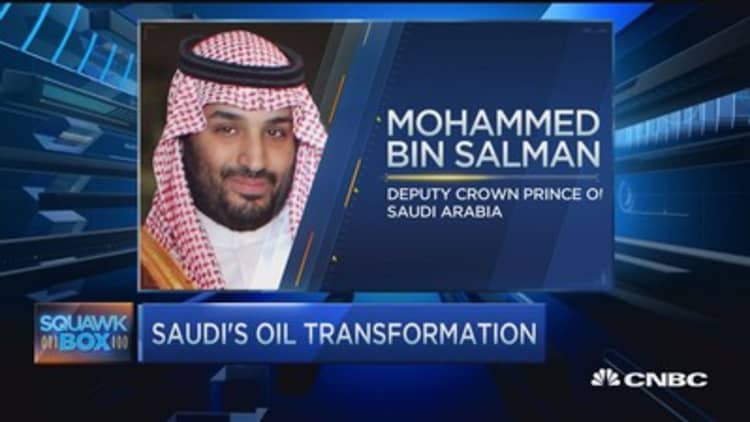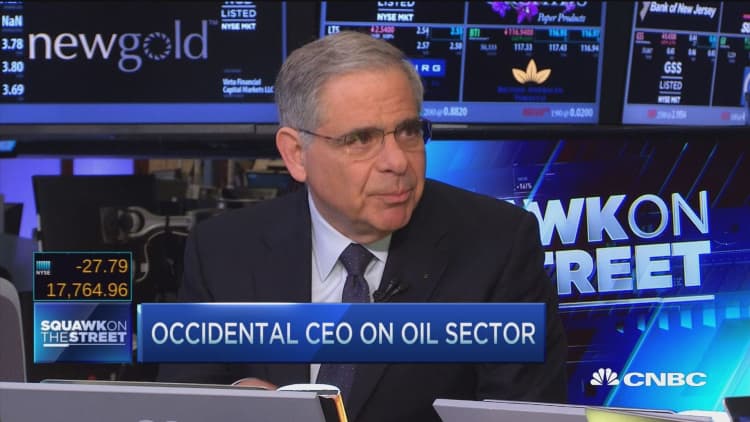

Oil prices fell on Monday, with WTI closing at a one-month low as investors doubted that producers will freeze output to rein in a worldwide crude glut.
U.S. crude prices briefly bounced off session lows after an outage on a major pipeline raised concerns about delivery to the U.S. storage hub.
Iran will raise its crude output and exports until it reaches pre-sanction levels, the semi-official Mehr news agency quoted Oil Minister Bijan Zanganeh as saying. Last week, a Saudi prince reportedly dismissed a production freeze plan without Tehran's involvement.
In the United States, the Keystone crude pipeline has been shut after an incident on Saturday in South Dakota, the pipeline's operator TransCanada Corp said in a notice sent to shippers and obtained by Reuters. The pipeline is part of a network that carries oil to the U.S. crude delivery hub in Cushing, Oklahoma.
Brent crude futures were down 94 cents at $37.73 a barrel, having risen by at least 40 percent since mid-February.
U.S. crude futures settled at $35.70 a barrel, down 2.96 percent, or $1.09.
"It's not very strange to see a wave of profit-taking and some unwinding of long positions, and some people even saying they could reposition for a move towards lower prices," ABN Amro chief energy economist Hans van Cleef said.
"That's part of a normal cycle that I think can continue this week, we might see $36 or $37 ... Prices are coming down because of speculation Saudi Arabia will not join (the freeze deal) and that's probably what we'll see over the next three weeks — more speculation and more verbal intervention."
Oil prices have lost upward momentum in the past week, but remain up about 40 percent above roughly 12-year lows struck in mid-February. U.S. government data on Friday showed that in the week to March 29, hedge funds cut their net long position in U.S. crude for the first time in six weeks.
The Organization of the Petroleum Exporting Countries and other major oil producers are to meet in Doha, Qatar in two weeks to discuss an output freeze plan.
But analysts said prospects for a deal looked dimmer, with the Saudis declining to rein in output without Iran, and Russia reporting its highest oil production in 30 years.
"If we draw a line and add up the stance of these countries, we have to conclude that a meaningful deal is only a distant possibility," PVM Oil Associates analyst Tamas Varga said.
Some believe that even freezing production around record highs will help to reduce the surplus, given that demand is expected to continue to grow this year.
"Most of the negative news is in the price and for oil prices to weaken materially, something big would have to happen," Gain Capital analyst Fawad Razaqzada said in a note.
U.S. production is proving more resilient to low oil prices than many expected, despite reduced drilling for new reserves as well as a jump in bankruptcies.
"Given this backdrop, and the potential for an oil-freeze deal this month, the global supply-demand imbalance is likely to fade as we progress towards the latter part of this year," Razaqzada added.


